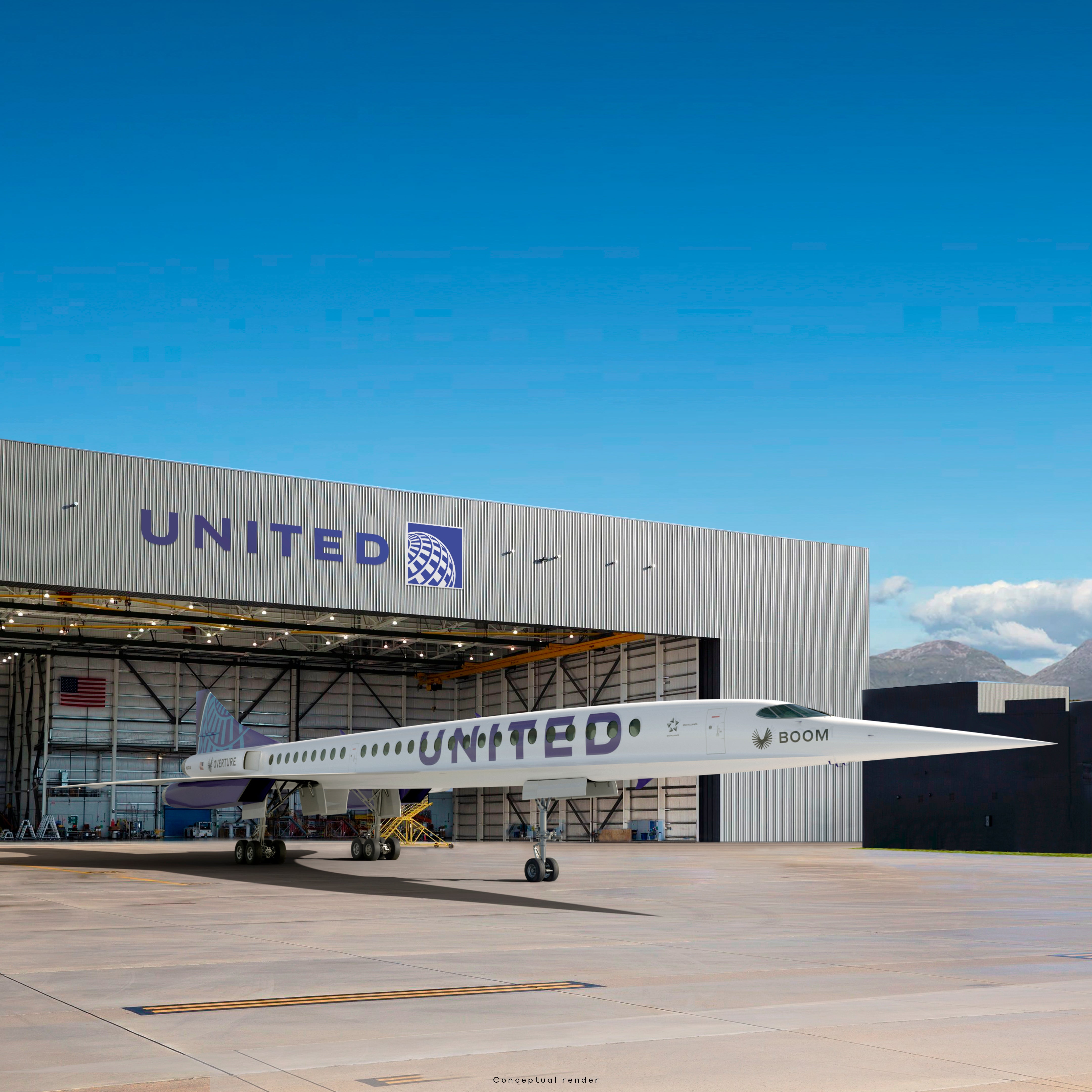Officials: Boom aims to build supersonic jets in N. Carolina
A Colorado-based aviation company wants to build a plant for next-generation supersonic passenger jets at a North Carolina airport

Your support helps us to tell the story
From reproductive rights to climate change to Big Tech, The Independent is on the ground when the story is developing. Whether it's investigating the financials of Elon Musk's pro-Trump PAC or producing our latest documentary, 'The A Word', which shines a light on the American women fighting for reproductive rights, we know how important it is to parse out the facts from the messaging.
At such a critical moment in US history, we need reporters on the ground. Your donation allows us to keep sending journalists to speak to both sides of the story.
The Independent is trusted by Americans across the entire political spectrum. And unlike many other quality news outlets, we choose not to lock Americans out of our reporting and analysis with paywalls. We believe quality journalism should be available to everyone, paid for by those who can afford it.
Your support makes all the difference.A Colorado-based aviation company wants to build a plant for next-generation supersonic passenger jets at a North Carolina airport, government officials said Wednesday as local and state boards approved hefty financial incentives for the parent company of Boom Supersonic.
If successful, the manufacturing and testing operation at Piedmont Triad International Airport in Greensboro could generate at least 1,750 jobs in the region by 2030, according to local and state officials, while cutting flight times significantly for a post-Concorde generation of consumers.
A state incentives panel voted to provide cash incentives over 20 years to Boom Technology Inc. should the company meet plant investment and job-creation goals. The award explanation describes a $500 million investment by the end of 2030.
Jacksonville, Florida and Greenville-Spartanburg, South Carolina, were also in the running for the plant, according to a state Commerce Department official who briefed the committee in public. Greensboro's city council also identified Boom Technology on Wednesday morning while approving local incentives.
A company spokesperson declined comment on the incentives until a formal announcement. Gov. Roy Cooper scheduled an economic development announcement at the airport for Wednesday afternoon.
Boom is one of several companies trying to revive supersonic passenger travel, which died with the grounding of the Concorde nearly two decades ago. Boom has built a one-third-size demonstrator aircraft called the XB1, but now it faces the daunting challenge of bulking that up.
Many technical and manufacturing hurdles still must be overcome to offer to airline companies Boom's Overture plane, which would carry 65 to 88 passengers, consume so-called sustainable aviation fuel and cruise at 60,000 feet (18,290 meters) at 1,300 mph (2,090 kph) — twice the speed of today’s passenger jets.
Local and state incentives identified Wednesday totaled $121.5 million, not including $107 million the state legislature set aside for Piedmont Triad airport road improvements, hangar construction and other site work, should an airplane manufacturer choose to expand in Guilford County. A lawmaker at the time the airport money was approved referred to “Project Thunderbird" — a name the state commerce official also mentioned Wednesday.
The Piedmont Triad airport is already the headquarters of Honda Aircraft Co. and the production of its seven-passenger HondaJet Elites.
Boom boasts of “pre-orders” from several potential customers including United Airlines which last year announced plans to buy 15 copies of the Overture and take options for another 35. United, however, said any orders hinge on Boom meeting certain financial and operational targets, which it declined to describe in any detail.
Skeptics say that if supersonic passenger travel were really feasible, Boeing and Airbus would be building the planes instead of leaving the market to start-ups like Boom.
The Concorde flew over the Atlantic and was barred from many overland routes because of the sonic booms, and any new supersonic planes will face the same hurdles. Another factor that helped kill the Concorde was its high cost of operation. The company's founder and CEO, Blake Scholl, has said technology will help solve both of those challenges, and tickets should be in the range of current-day business-class fares.
___
Associated Press airlines writer David Koenig in Dallas contributed to this report.